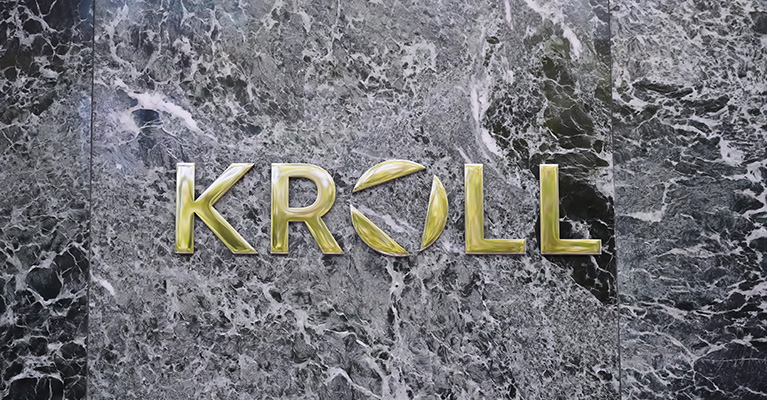
What the Kroll Report Means for Your Business and How it Manages Third Party Financial Crime Risk
This year’s Kroll Fraud and Financial Crime Report found companies are growing increasingly concerned that third parties are driving a higher risk of financial crime. We read through the report to pull out lessons for companies from this survey of 400 executives...

Six Things to Know About Emerging HRDD Regulations
Millions of companies around the world have been impacted by regulations which mandate them to carry out ESG and human rights due diligence (HRDD in the last few years–or they soon will be. These regulations bring new legal, financial, strategic and reputational...

Four Regulatory Enforcements Against Alleged Third Party Compliance Failures
Global companies have been fined hundreds of millions of dollars for alleged compliance breaches in the last year. Whether the allegations against them related to bribery and corruption or breaches of new human rights due diligence legislation, a recurring theme...

What the Ukrainian War Has Meant for Third Party Risk Management
From Stricter Sanctions to Broken Supply Chains: What the Ukrainian War has Meant for Third Party Risk Management February 2024 will mark two years since the latest conflict in Ukraine began. As well as its tragic impact on so many lives, the war has also brought...

If You Haven’t Addressed These 5 Third-Party Risks, You’re Behind the Curve
Third parties help companies to deliver their products and services, but they also expose them to regulatory, financial, strategic and reputational risks. In the latest blog in our third party risk series, we look further at five key third party risks facing your...

Financial Crime is on the Rise. Here’s How Your Company Can Stay a Step Ahead
Financial crimes such as bribery, corruption and money laundering are becoming more common and more complex. One of the most common reasons for a company becoming implicated in alleged financial crime is its exposure to the activities of its third parties and suppliers...

Why We’re Paying Attention to Human Rights & ESG Regulations
Over the last five years, the dominant regulatory trend in global compliance has been the spread of legislation which mandates companies to carry out Human Rights and ESG Due Diligence (HRDD) on third parties and suppliers. This has significant implications for...

AML Fines are on the Rise. Here’s How to Avoid Them
Anti-money laundering fines are up by 50%. Here's how your company can avoid being next Avoiding a breach of Anti-Money Laundering (AML) regulations–and the fine that follows–should be a priority for any company in 2023. The financial costs of a compliance failure...

Five AML Fines and Lessons
What Companies Can Learn From 5 Recent Fines by Global Regulators for Alleged Money Laundering Alleged breaches of Anti-Money Laundering regulations are leading to increasingly large fines against companies, as we have shown over the course of this AML Risk series...

How Companies Can Spot Money Laundering Before the Fine
Prevent and Detect: How Companies Can Spot Money Laundering Before the Fine Companies are receiving ever larger fines for allegedly breaching anti-money laundering regulations–in fact, the total fines issued globally in 2022 was 50% higher than in 2021. As well...

Seven Ways Companies Can Effectively Respond to the Global Spread of New Anti-Money Laundering Regulations
In the last blog in our AML series , we outlined the major developments which are driving rapid regulatory changes across the world. Today, we are going a step further by suggesting seven ways companies should respond to these emerging regulatory risks. Implementing...

The Four Major Developments Every Business Should Know About Anti-Money Laundering Regulations
Anti-Money Laundering regulations have changed rapidly in recent years–from Switzerland to Singapore, from Brazil to Bahrain. Building on our whitepaper, ‘AML Compliance: A Global View’, we identify and summarise four major developments which are driving regulatory...

Financial Crime is on the Rise. Here’s How to Stay a Step Ahead
Financial crimes such as bribery, corruption and money laundering are becoming more common and more complex. One of the most common reasons for a company becoming implicated in alleged financial crime is its exposure to the activities of its third parties and suppliers...

Why We’re Paying Attention to Human Rights & ESG Regulations
Over the last five years, the dominant regulatory trend in global compliance has been the spread of legislation which mandates companies to carry out Human Rights and ESG Due Diligence (HRDD) on third parties and suppliers. This has significant implications for...

Essential Steps in Conducting Due Diligence Checks
Every business transaction, whether it's a merger, an acquisition, or a simple investment, carries its share of risks. Identifying, understanding, and addressing these risks is fundamental to ensuring the security and success of the transaction. This critical process...